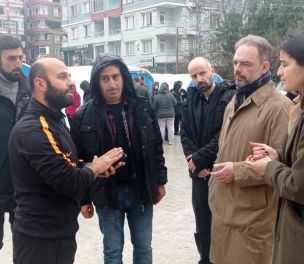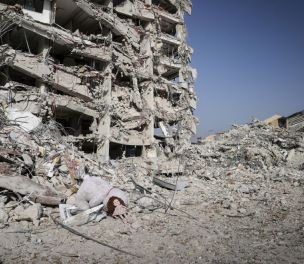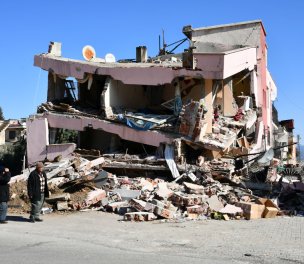Click to read the article in Turkish
Reporters Without Borders (RSF) has denounced recent censorship targeting online reporting criticizing public authorities' practices after last month's massive earthquakes.
The government should respect investigative journalism, the group said yesterday (March 16).
Erol Önderoğlu, the RSF representative in Turkey, expressed concerns that online censorship may further increase ahead of the May 14 elections.
"After security forces, the administration and the Radio and Television Supreme Council (RTÜK), now penal judgeships of peace target press freedom. While the country is in need of transparency more than ever before, these decisions to block access to reports once again serve the purpose of preventing criticism against the government's post-earthquake practices."
Turkey ranked 149th out of 180 countries in the RSF Press Freedom Index 2022.
CLICK - BİA Media Monitoring Annual Report 2022 - Journalists shackled ahead of elections
Media restrictions after the earthquakes
After the quakes, several journalists were briefly detained in the quake-hit region while court blocked access to some online news reports and articles about the disaster.
Also, two days after the quakes, the authorities restricted the bandwidth of Twitter for nearly an entire day, effectively blocking access to the platform without a VPN or proxy connection. The restriction was lifted after widespread criticism that Twitter had an important role in rescue efforts, with many people under the rubble tweeting their locations to call for help.
Some 173 people were detained because of their social media posts about the quakes, and 43 of them were remanded in custody, according to a March 13 statement by the police.
Some of the social media users and at least one journalist faced "spreading disinformation" charges according to a controversial law enacted in October.
On February 6, two earthquakes with a magnitude of 7.7 and 7.6 struck the southern city of Maraş.
The quakes caused destruction in 10 cities in Turkey's south and southeast, as well as Syria's northern parts, where over 5,000 people were killed.
The official death toll from the quakes stands at over 48,000 and is expected to increase further, as over 227,000 buildings were destroyed or severely damaged, according to government figures. (HA/VK)




.jpg)
.jpg)
.jpg)
.jpg)
.jpg)




